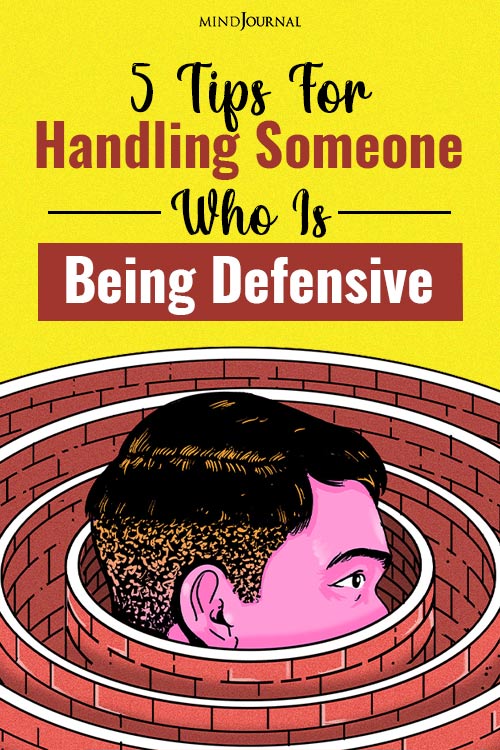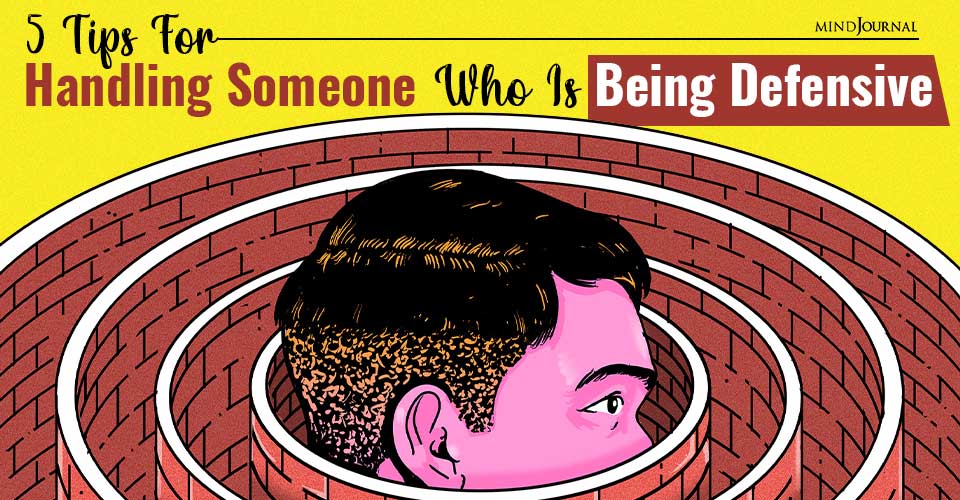Handling a person who is being defensive can be a monumental task sometimes, and losing your temper might seem like the easier solution. But getting angry and getting into a confrontation with them is not the right approach to have.
I was experiencing a minor catastrophe. My garage door wouldn’t open. I couldn’t open it manually either, so my car was stuck inside. I was hoping to drive it to the airport the next morning.
The garage door repairman called to say they could fix it in the morning. I asked if there were any chance they could come out that day. He said there was a slight possibility a cancellation could come in. I said, “Put me on the list for a cancellation. If you can’t get here today, I will have to cancel the order.”
He sharply replied, “Fine. Cancel the order.”
After I caught my breath, I said, “I didn’t mean it as a threat, I meant it as a fact. I’m leaving town tomorrow so I won’t be here if you show up then.”
He mumbled something about not counting on them being at my house today and I needed to let them know by this afternoon if I didn’t want them to come tomorrow. He then hung up.
An hour later, he called to tell me they would be out later that morning since someone else had canceled.
Acting defensively is a common human behavior. The brain’s primary function is to protect. When talking to people, if they feel psychologically safe with you, you might be able to have a rational conversation with them. If their brain detects a possible threat, it will trigger a protective response. They will either shut down or launch a counterattack.
Related: How To Stop Getting Defensive When Triggered: 5 Tips
In most conversations, a person’s defensive reaction has little to do with your intention.
If the person you are speaking with reacts defensively to your well-meant words, consider these tips when formulating your response.
5 Tips For Easing A Person’s Defensiveness
1. Don’t Say, “Don’t Take It Personally” Or “Don’t Be So Defensive.”
You will fortify the person’s reactions. Tell the person you are sorry for the misunderstanding, but that your intention was meant to help or give information (if that was true for you).
2. Try To Understand Why The Person’s Brain Interpreted Your Words As A Threat.
Could the person have interpreted your words as criticism or judgment? Could the person have thought you were threatening to take any action that would hurt him or her? Acknowledge that you see how important the topic is to the person, and explain what you meant instead.

3. Apologize, Or At Least Admit You Don’t Always Express Yourself Well And You Would Like To Try Again.
This doesn’t mean you were wrong. Your humility will soften their defensiveness.
Related: How to Listen Without Getting Defensive
4. Catch Your Own Emotional Reaction.
You might find their defensiveness triggers you to feel angry or fearful as your brain takes on a counter-protective stance.
If your breathing quickens or stops, take a deep breath into your abdomen. Then count to four to yourself as you let the breath out. As your brain settles down, choose to be curious about why the person reacted to you so aggressively.
Want to know more about being defensive? Check this video out below!
5. Give The Person Space To Breathe.
Taking a breath will not only help you center yourself, but it will give the person a chance to calm down as well. The person might keep talking, but he or she just might take a breath as well. Give the person a chance to think about what to say next.
No matter who is at fault for triggering fear or anger when conversing, you have the ability to ease the tension and refocus on achieving the desired result together. Practice these five tips for easing a person’s defensiveness so you can move your conversation forward.
Related: 12 Truths About Defensive Behavior
Find more tips for shifting negativity into positive results in The Discomfort Zone: How Leaders Turn Difficult Conversations Into Breakthroughs.
Written By Marcia Reynolds
Originally Appeared On Psychology Today









Leave a Reply
You must be logged in to post a comment.